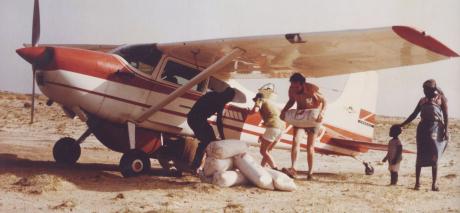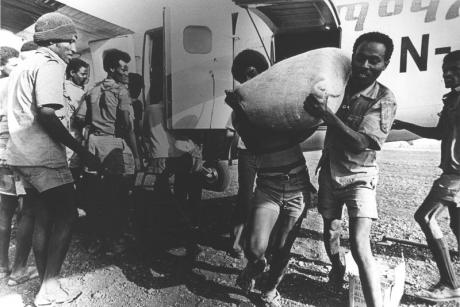In the early 1980s Chad was recovering from the effects of war. Poor rainfall made survival even harder and crops began to fail. In 1985, thousands of Chadians left their homes in search of food, making a perilous 1,000-mile journey into Darfur, Sudan. Hundreds of children were dying each day. In the south of Chad, MAF was flying regularly and discovered first-hand the devastating consequences of the lack of rain. Unless urgent action was taken, 30,000 people in the villages MAF served would starve.
MAF supporters generously responded and a relief operation was set up working with local Chadians, churches and mission workers and the hospital at Bébalém, distributing grain to villages that needed it most. As the need increased, MAF gathered an emergency task force of additional staff and extra aircraft were loaned from other programmes. By the end of the operation, 2,460 tonnes of grain had been distributed, helping to save the lives of 55,000 people whilst vaccinating 1,600 children and averting a measles epidemic.

